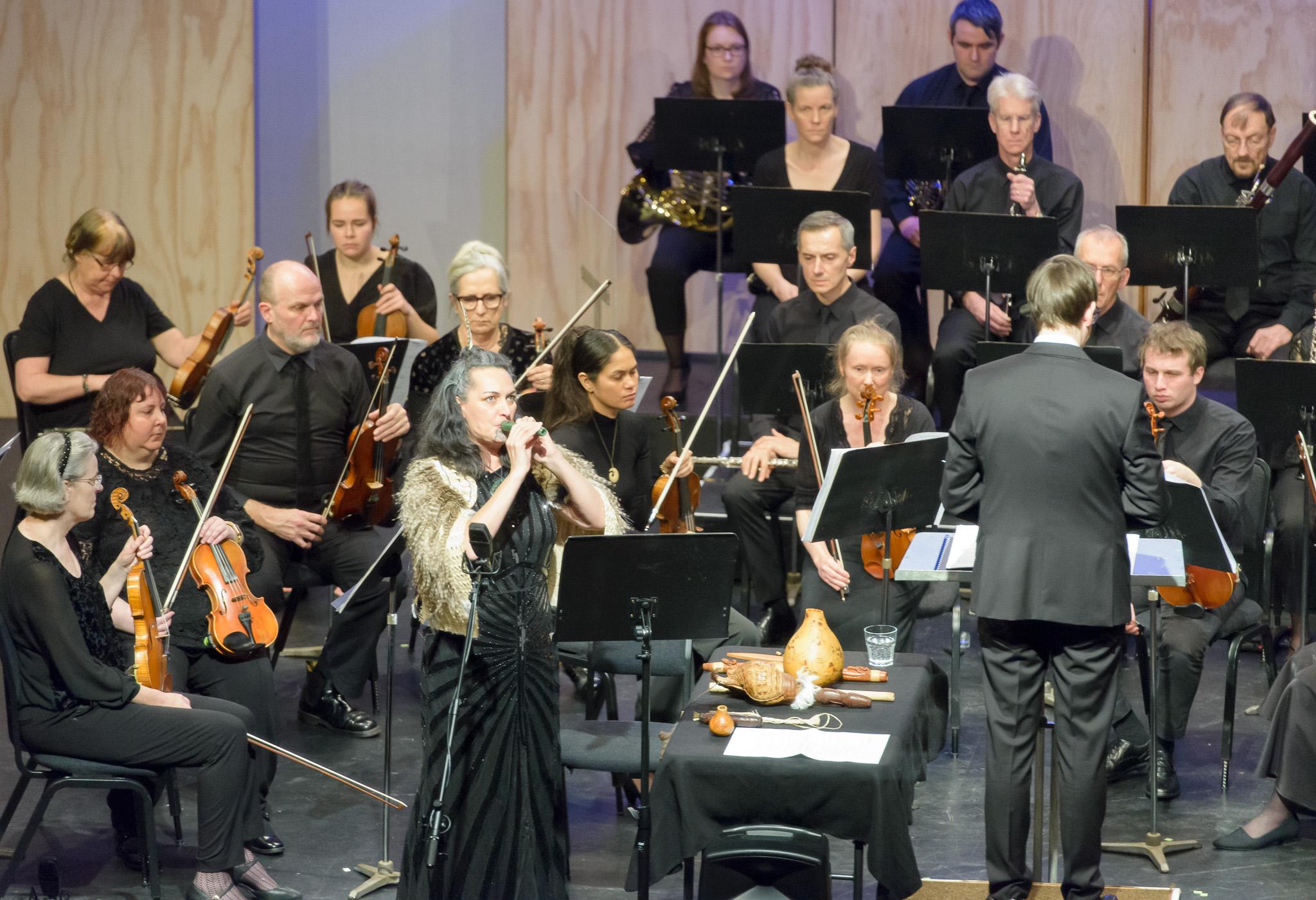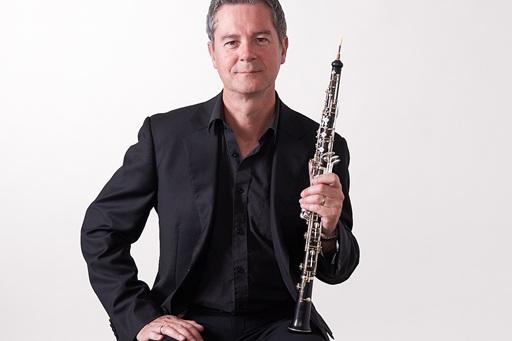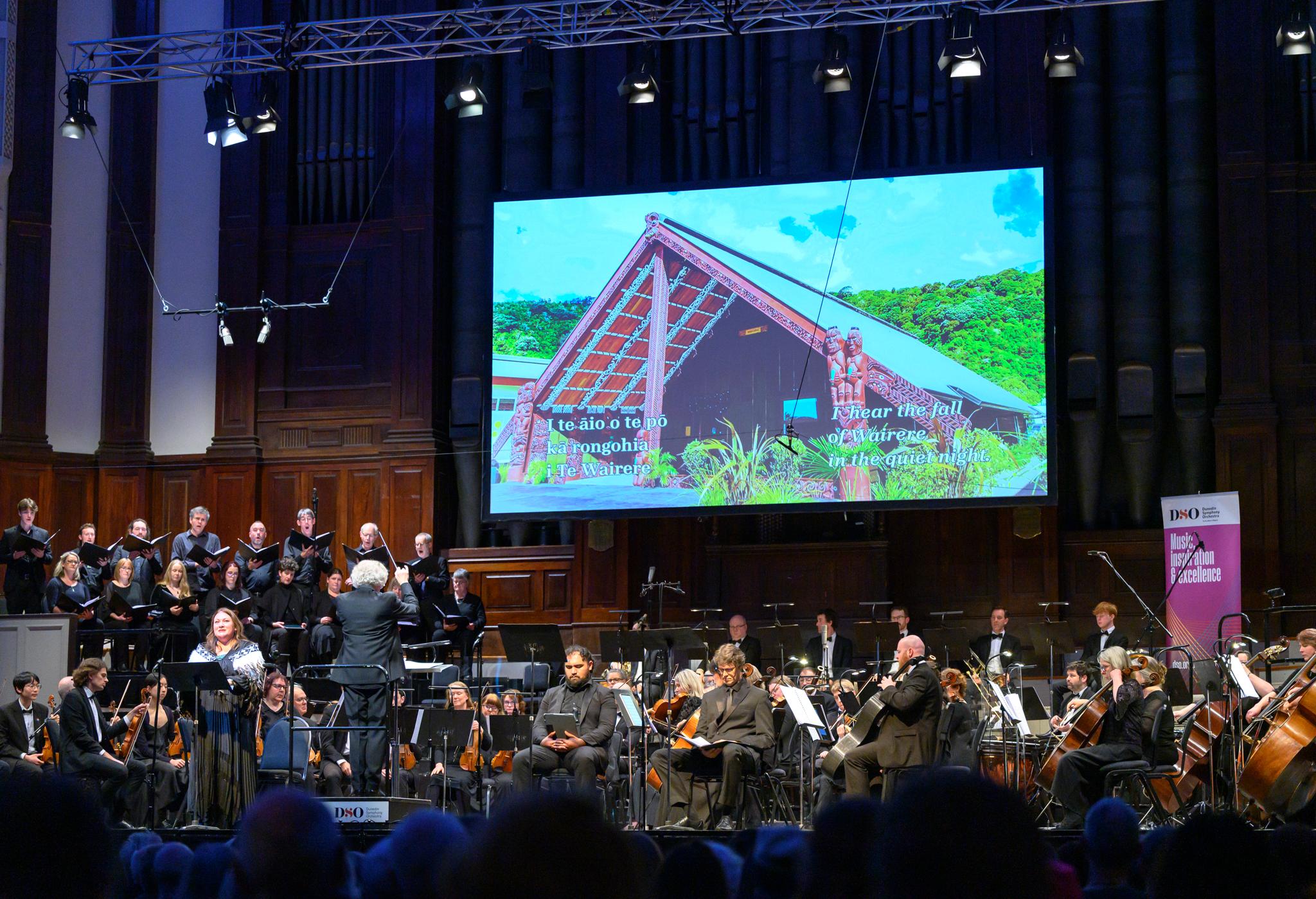Review - 24 Jul 2023
NZ composers, traditional Māori instruments to fore
The Dunedin Symphony Orchestra conducted by Brent Stewart celebrated Matariki with two weekend matinee concerts at the King’s and Queen’s Performing Arts Centre.

Celebrating Matariki
Dunedin Symphony Orchestra
King’s and Queen’s Performing Arts Centre, Dunedin, Saturday, July 22
The Dunedin Symphony Orchestra conducted by Brent Stewart celebrated Matariki with two weekend matinee concerts at the King’s and Queen’s Performing Arts Centre.
New Zealand composers and guest performer Ariana Tikao with traditional Māori instruments were a feature of the first half of the programme
Philip Brownlee and Tikao worked together to produce a contemporary piece Manaaki.
The 11-minute work for orchestral strings and traditional Māori instrumentation was quite fragmented, although had a forward-moving theme following marae procedures and sentiments, using several different taonga puoro alongside shimmering strings and glissandi.
Night Song (1974), by Larry Pruden, employed strings to convey an atmospheric nocturnal setting. Brigid Bisley added a vibraphone for Glimmer of Blue (2005) to portray the colours of glimmering sea or sky.
Thicker more sonorous sounds created climactic points and vibraphone added extra texture.
A world premiere by Dunedin-based composer Gillian Whitehead entitled Ngā Whetū o Matariki (Stars of Matariki) celebrated the stars Puaka and Matariki, which appear in the morning skies as harbingers of the Māori New Year.
The 10-minute piece successfully combined the element of "breath through wood" with traditional full orchestral timbres. Taonga puoro with cello and other subtle combinations were very effective, but in the words of the composer who accepted the audience acclamation — "you cannot colonise taonga".
Brent Stewart is a full-time New Zealand musician and conductor whose enthusiasm inspires both orchestra and audience. Before Mozart’s Symphony No 41 (1788), nicknamed Jupiter after the Roman god of the sky, he chatted informally about various aspects of the four movements to come, demanding some "spontaneous" excerpts from the orchestra.
This also served to cleanse the aural palate after the extreme contemporary elements of the first half. The orchestra then delivered an excellent performance — stylistic and well-paced with vibrant, exciting dynamic passages highlighting every climax. Mozart at its very best!
By Elizabeth Bouman
Share article:
Other News & Reviews
News
Introducing the oboe soloist, Robert Orr for the Forsyth Barr concert ‘Sublime Schubert’
News
Introducing the conductor Benjamin Bayl for the Forsyth Barr concert ‘Sublime Schubert’
Stay Tuned.
Keep current about all things DSO.

2024 Dunedin Symphony Orchestra
(Registered as Dunedin Civic Orchestra Incorporated. Registered charity CC34031.)
Address
PO Box 5571
Dunedin 9054
New Zealand
Hanover Hall
65 Hanover Street
Dunedin 9016
New Zealand











